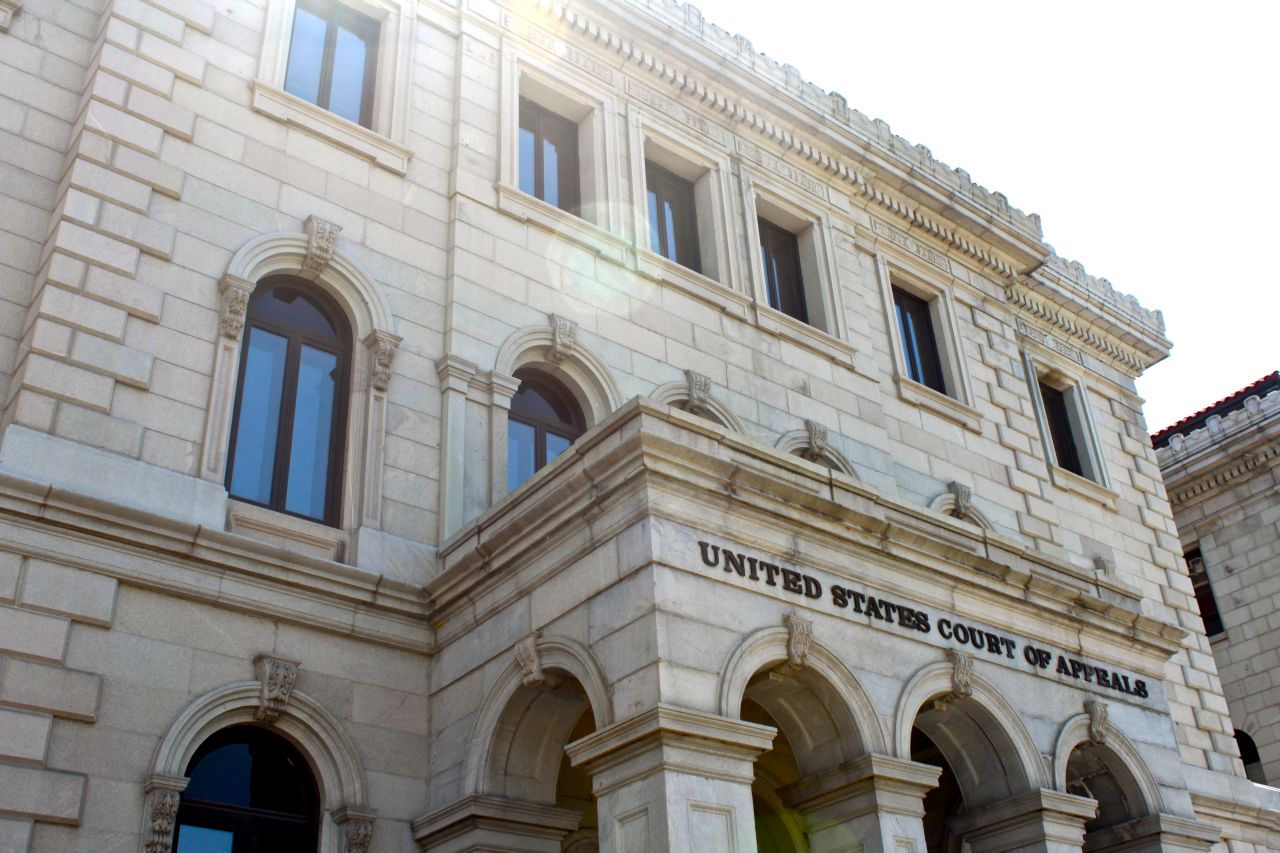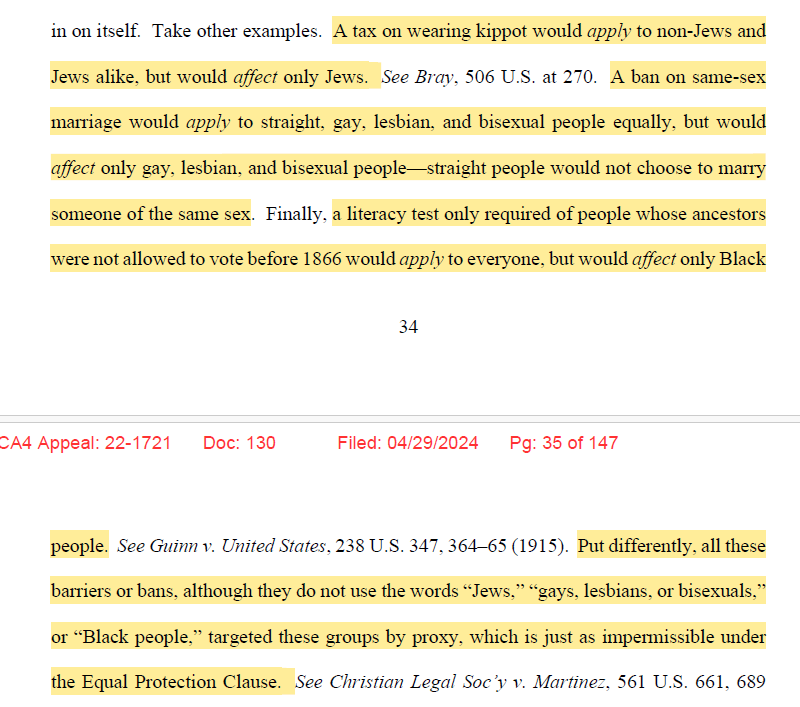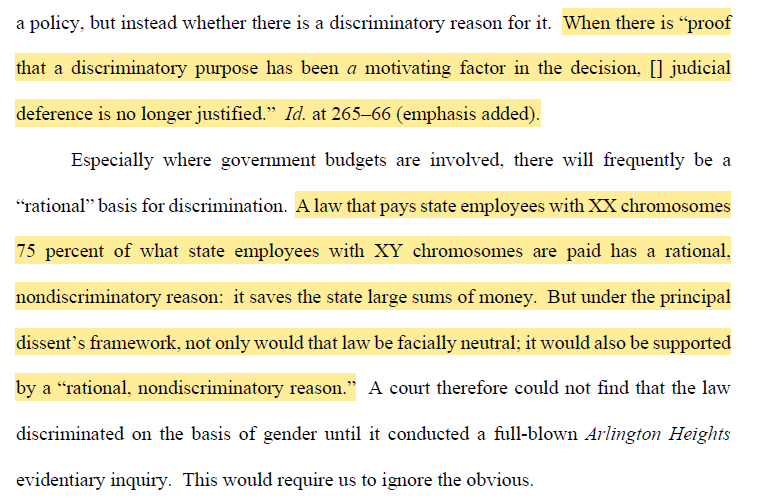National
Meet the trans editor covering Major League Baseball
Bobbie Dittmeier combines dual passions for sports, journalism

A day at the office at MLB.com for Bobbie Dittmeier is just about the same for her as it is for other editors working to produce news stories on developments in Major League Baseball.
Upon coming to the New York office, she’ll speak with the copy chief about potential articles for the day with other editors, who will then assign the stories to reporters.
“We have a lot of stories coming in everyday,” Dittmeier says. “We have 30 different reporters plus other columnists, part-timers and interns. We have a lot of writers for our staff. We cover all 30 teams full time. So, there’s a lot of copy that comes into the desk every day.”
FIND MORE OF THE WASHINGTON BLADE SPORTS ISSUE HERE.
The big news in recent weeks? The biogenesis investigation, which has led to the suspension of several players, including New York Yankees third baseman Alex Rodriguez.
“Waiting for the news on Alex Rodriguez is like waiting for your wife to go into labor,” she says. “You got the bags packed and the cars gassed, and you’re just going about your regular routine waiting for the pager to go off. And knowing that when the pager does go off that the next 12 to 18 hours is going to be crazy.”
But Dittmeier, who spoke to the Washington Blade earlier this month, is unique among other editors and baseball enthusiasts working at MLB.com: She’s transgender and the only openly LGBT person on staff at the site.
Dittmeier says being the only openly transgender person on staff hasn’t been an issue on the job, which she attributes to changing attitudes over time and her own job performance.
“I think the most significant part of it is that I have a lot of experience and I do good work, if I may say so myself,” Dittmeier says. “And I think that the people I work for value that. They certainly didn’t want to throw me out of the office for being transgender.”
One exception to the acceptance she’s found was what Dittmeier calls a “blip” among two individuals upon her announcement she would transition. Reluctant to go into detail, she characterizes it as more of a misunderstanding and says neither of those people works at MLB.com any longer.
In 2007, after working for MLB.com for six years, Dittmeier announced she would transition from male to female. She had already married and had a child. And it wasn’t her first attempt; she made an earlier attempt at transitioning in the 1990s.
“It was really only after I had been at MLB for a number of years that I felt comfortable and confident enough that transition wasn’t going to put me on the street,” Dittmeier said. “So, I felt I had job security, I knew the people I worked for, I knew that they knew I do a good job, that I’m good at what I do, so I didn’t think it would be that much of an issue. So, I worked toward it for a couple years, starting probably around 2005, and then finally culminating in coming out at work in 2007.”
Dittmeier says she “always kind of felt something different” about her when she was growing up in Long Island during her youth, but wasn’t at the time able to identify it because of a lack of information.
“I kind of figured it out in my teens, but you don’t act upon it because, again, it was a different time,” Dittmeier says. “You didn’t know if you were going to be ostracized from your family, you didn’t have the resources, you certainly didn’t have the Internet. Going to a shrink was really frowned upon. You certainly didn’t talk about these things with your parents.”
At the same time growing up, Dittmeier was an avid enthusiast of all things baseball and newsprint. After school, she would read the sports columns in Newsday, a Pulitzer Prize-winning paper that was distributed in her hometown.
“And it was an afternoon paper, so it would come to the house during the day, and I would come home from school, and the first thing I would do before I went out to play ball was I would make myself a sandwich and I would read the newspaper, then I would go out and play ball,” Dittmeier says. “So, I always loved journalism. I always loved writing.”
Dittmeier started in the business of sports writing as a beat reporter covering hockey and horseracing, mostly in Westchester County just outside of New York, and then in Albany for a number of years. She wanted to get involved in baseball, but didn’t have the opportunity. Landing the job at MLB.com 12 years ago made that dream come true.
One recent big news story hit close to home. In July, Major League Baseball announced that it had adopted an employment non-discrimination policy prohibiting discrimination based on sexual orientation. Dittmeier says she didn’t cover the story personally, although MLB.com had a reporter, Paul Hagen, covering it.
“Personally, it doesn’t impact me at all, I don’t think,” Dittmeier says. “But I’m certainly glad to see Major League Baseball take it to that level and respond like that. I think that’s more for clubhouses, players, the teams more than me.”
The policy doesn’t cover gender identity, but Dittmeier isn’t discouraged. New York City, where she lives and works, has employment non-discrimination protections based on gender identity.
“It’s not troubling for me personally,” Dittmeier says. “It would be nice if they took a look at that. But again, for me, personally I don’t think that I’m at any kind of risk as long as I’m doing my job well. If I don’t do my job well, then I’m subject to changes just like everybody else. If it’s not there, it would be nice if they would include it, I’m sure.”
Asked about the prevalence of gay players in Major League Baseball, Dittmeier insists there are such players who haven’t made their sexual orientation or gender identity public yet.
“There has to be,” Dittmeier says. “I remember having a debate with a hockey coach years and years ago who insisted there were no gay players anywhere in professional hockey, and I told him I thought that was ridiculous. If the number is 10 percent of the population is gay, then there has to be.”
But even with the MLB’s non-discrimination policy on sexual orientation in place, Dittmeier says it would take a player with exceptional skills to come out as gay — more talent than what an average baseball player normally has.
“If you are hitting 300 and you’re a perennial all-star, and you happen to be [gay, bi or trans], your chances of successfully coming out are pretty good,” Dittmeier says. “If you’re going up and down between Triple-A and the major leagues, that’s a tough one, because if it comes down to a decision between that player and someone else as to whether they’re going to make the roster, then you have to worry about someone, consciously or unconsciously, choosing the other player because of your sexual orientation.”
Although he’s not a baseball player, the most notable coming out of a gay athlete this year was former Washington Wizards center Jason Collins. It’s his status as a veteran that Dittmeier says made that coming out possible.
“He’s 34 years old,” Dittmeier says. “He’s a good ball player at this point in his career. If, for some reason, he discontinues to play, he’s had a pretty good career. So he doesn’t have very much to lose. When he was 23, 24, 25 years old, he certainly had a lot more to lose than he does now. I think security is really, really important.”
Dittmeier says she’s seen attitudes change positively in recent decades, and expects those to change even further as time progresses — particularly for transgender people like herself.
“I know most people don’t know someone who is transgender, but certainly most people know someone else who’s LGBT,” Dittmeier says. “And 20 years ago, I don’t think you could say that. Once you know someone, either someone in your life or someone you get to know, someone they work with or whatever, they understand it better. I guess that’s probably like with anything in life.”
CORRECTIONS: An earlier version of this article misspelled the name of MLB.com reporter Paul Hagen. It was also incorrect about the position that Alex Rodriguez currently plays and Dittmeier’s hometown. The article has also been updated to clarify that New York City has transgender non-discrimination protections. The Blade regrets the errors.
National
United Methodist Church removes 40-year ban on gay clergy
Delegates also voted for other LGBTQ-inclusive measures

The United Methodist Church on Wednesday removed a ban on gay clergy that was in place for more than 40 years, voting to also allow LGBTQ weddings and end prohibitions on the use of United Methodist funds to “promote acceptance of homosexuality.”
Overturning the policy forbidding the church from ordaining “self-avowed practicing homosexuals” effectively formalized a practice that had caused an estimated quarter of U.S. congregations to leave the church.
The New York Times notes additional votes “affirming L.G.B.T.Q. inclusion in the church are expected before the meeting adjourns on Friday.” Wednesday’s measures were passed overwhelmingly and without debate. Delegates met in Charlotte, N.C.
According to the church’s General Council on Finance and Administration, there were 5,424,175 members in the U.S. in 2022 with an estimated global membership approaching 10 million.
The Times notes that other matters of business last week included a “regionalization” plan, which gave autonomy to different regions such that they can establish their own rules on matters including issues of sexuality — about which international factions are likelier to have more conservative views.
Federal Government
Republican state AGs challenge Biden administration’s revised Title IX policies
New rules protect LGBTQ students from discrimination

Four Republicans state attorneys general have sued the Biden-Harris administration over the U.S. Department of Education’s new Title IX policies that were finalized April 19 and carry anti-discrimination protections for LGBTQ students in public schools.
The lawsuit filed on Tuesday, which is led by the attorneys general of Kentucky and Tennessee, follows a pair of legal challenges from nine Republican states on Monday — all contesting the administration’s interpretation that sex-based discrimination under the statute also covers that which is based on the victim’s sexual orientation or gender identity.
The administration also rolled back Trump-era rules governing how schools must respond to allegations of sexual harassment and sexual assault, which were widely perceived as biased in favor of the interests of those who are accused.
“The U.S. Department of Education has no authority to let boys into girls’ locker rooms,” Tennessee Attorney General Jonathan Skrmetti said in a statement. “In the decades since its adoption, Title IX has been universally understood to protect the privacy and safety of women in private spaces like locker rooms and bathrooms.”
“Florida is suing the Biden administration over its unlawful Title IX changes,” Florida Gov. Ron DeSantis wrote on social media. “Biden is abusing his constitutional authority to push an ideological agenda that harms women and girls and conflicts with the truth.”
After announcing the finalization of the department’s new rules, Education Secretary Miguel Cardona told reporters, “These regulations make it crystal clear that everyone can access schools that are safe, welcoming and that respect their rights.”
The new rule does not provide guidance on whether schools must allow transgender students to play on sports teams corresponding with their gender identity to comply with Title IX, a question that is addressed in a separate rule proposed by the agency in April.
LGBTQ and civil rights advocacy groups praised the changes. Lambda Legal issued a statement arguing the new rule “protects LGBTQ+ students from discrimination and other abuse,” adding that it “appropriately underscores that Title IX’s civil rights protections clearly cover LGBTQ+ students, as well as survivors and pregnant and parenting students across race and gender identity.”
Federal Government
4th Circuit rules gender identity is a protected characteristic
Ruling a response to N.C., W.Va. legal challenges

BY ERIN REED | The 4th U.S. Circuit Court of Appeals ruled Monday that transgender people are a protected class and that Medicaid bans on trans care are unconstitutional.
Furthermore, the court ruled that discriminating based on a diagnosis of gender dysphoria is discrimination based on gender identity and sex. The ruling is in response to lower court challenges against state laws and policies in North Carolina and West Virginia that prevent trans people on state plans or Medicaid from obtaining coverage for gender-affirming care; those lower courts found such exclusions unconstitutional.
In issuing the final ruling, the 4th Circuit declared that trans exclusions were “obviously discriminatory” and were “in violation of the equal protection clause” of the Constitution, upholding lower court rulings that barred the discriminatory exclusions.
The 4th Circuit ruling focused on two cases in states within its jurisdiction: North Carolina and West Virginia. In North Carolina, trans state employees who rely on the State Health Plan were unable to use it to obtain gender-affirming care for gender dysphoria diagnoses.
In West Virginia, a similar exclusion applied to those on the state’s Medicaid plan for surgeries related to a diagnosis of gender dysphoria. Both exclusions were overturned by lower courts, and both states appealed to the 4th Circuit.
Attorneys for the states had argued that the policies were not discriminatory because the exclusions for gender affirming care “apply to everyone, not just transgender people.” The majority of the court, however, struck down such a claim, pointing to several other cases where such arguments break down, such as same-sex marriage bans “applying to straight, gay, lesbian, and bisexual people equally,” even though straight people would be entirely unaffected by such bans.
Other cases cited included literacy tests, a tax on wearing kippot for Jewish people, and interracial marriage in Loving v. Virginia.
See this portion of the court analysis here:

Of particular note in the majority opinion was a section on Geduldig v. Aiello that seemed laser-targeted toward an eventual U.S. Supreme Court decision on discriminatory policies targeting trans people. Geduldig v. Aiello, a 1974 ruling, determined that pregnancy discrimination is not inherently sex discrimination because it does not “classify on sex,” but rather, on pregnancy status.
Using similar arguments, the states claimed that gender affirming care exclusions did not classify or discriminate based on trans status or sex, but rather, on a diagnosis of gender dysphoria and treatments to alleviate that dysphoria.
The majority was unconvinced, ruling, “gender dysphoria is so intimately related to transgender status as to be virtually indistinguishable from it. The excluded treatments aim at addressing incongruity between sex assigned at birth and gender identity, the very heart of transgender status.” In doing so, the majority cited several cases, many from after Geduldig was decided.
Notably, Geduldig was cited in both the 6th and 11th Circuit decisions upholding gender affirming care bans in a handful of states.
The court also pointed to the potentially ridiculous conclusions that strict readings of what counts as proxy discrimination could lead to, such as if legislators attempted to use “XX chromosomes” and “XY chromosomes” to get around sex discrimination policies:
Importantly, the court also rebutted recent arguments that Bostock applies only to “limited Title VII claims involving employers who fired” LGBTQ employees, and not to Title IX, which the Affordable Care Act’s anti-discrimination mandate references. The majority stated that this is not the case, and that there is “nothing in Bostock to suggest the holding was that narrow.”
Ultimately, the court ruled that the exclusions on trans care violate the Equal Protection Clause of the Constitution. The court also ruled that the West Virginia Medicaid Program violates the Medicaid Act and the anti-discrimination provisions of the Affordable Care Act.
Additionally, the court upheld the dismissal of anti-trans expert testimony for lacking relevant expertise. West Virginia and North Carolina must end trans care exclusions in line with earlier district court decisions.
The decision will likely have nationwide impacts on court cases in other districts. The case had become a major battleground for trans rights, with dozens of states filing amicus briefs in favor or against the protection of the equal process rights of trans people. Twenty-one Republican states filed an amicus brief in favor of denying trans people anti-discrimination protections in healthcare, and 17 Democratic states joined an amicus brief in support of the healthcare rights of trans individuals.
Many Republican states are defending anti-trans laws that discriminate against trans people by banning or limiting gender-affirming care. These laws could come under threat if the legal rationale used in this decision is adopted by other circuits. In the 4th Circuit’s jurisdiction, West Virginia and North Carolina already have gender-affirming care bans for trans youth in place, and South Carolina may consider a similar bill this week.
The decision could potentially be used as precedent to challenge all of those laws in the near future and to deter South Carolina’s bill from passing into law.
The decision is the latest in a web of legal battles concerning trans people. Earlier this month, the 4th Circuit also reversed a sports ban in West Virginia, ruling that Title IX protects trans student athletes. However, the Supreme Court recently narrowed a victory for trans healthcare from the 9th U.S. Circuit Court of Appeals and allowed Idaho to continue enforcing its ban on gender-affirming care for everyone except the two plaintiffs in the case.
Importantly, that decision was not about the constitutionality of gender-affirming care, but the limits of temporary injunctions in the early stages of a constitutional challenge to discriminatory state laws. It is likely that the Supreme Court will ultimately hear cases on this topic in the near future.
Celebrating the victory, Lambda Legal Counsel and Health Care Strategist Omar Gonzalez-Pagan said in a posted statement, “The court’s decision sends a clear message that gender-affirming care is critical medical care for transgender people and that denying it is harmful and unlawful … We hope this decision makes it clear to policy makers across the country that health care decisions belong to patients, their families, and their doctors, not to politicians.”
****************************************************************************

Erin Reed is a transgender woman (she/her pronouns) and researcher who tracks anti-LGBTQ+ legislation around the world and helps people become better advocates for their queer family, friends, colleagues, and community. Reed also is a social media consultant and public speaker.
******************************************************************************************
The preceding article was first published at Erin In The Morning and is republished with permission.



















